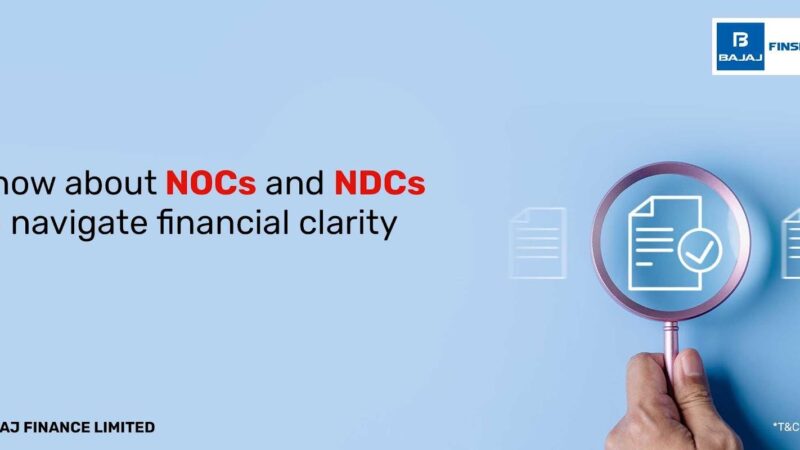All You Need To Know About CARE Ratings

Credit rating agencies provide investors and lenders with valuable insights into the creditworthiness of various entities. One of the prominent credit rating agencies in India is Credit Analysis and Research Limited, commonly known as CARE Ratings. We’ll take a closer look at the critical aspects of CARE Ratings, their functions, and their role in shaping this country’s financial landscape.
Understanding CARE Ratings
CARE Ratings is a credit rating agency accredited by the Reserve Bank of India (RBI) and the Securities and Exchange Board of India (SEBI). Established in April 1993, it has since become a trusted source for evaluating and grading the creditworthiness of corporations, government bodies, and financial institutions.
The Role of CARE Ratings
Credit Risk Assessment
CARE Ratings primarily assesses the credit risk associated with borrowers. Its ratings serve as a guide for investors, allowing them to make informed decisions regarding investments in debt instruments issued by various entities. The ratings range from ‘AAA,’ representing the highest credit quality, to ‘D,’ indicating a default or near-default situation.
For instance, Poonawalla Fincorp, led by Abhay Bhutada, MD and Mahindra and Mahindra Financial Services, led by Ramesh Iyer, VC and MD, are two examples of financial institutions that have an ‘AAA’ rating from CARE.
Insightful Reports
This agency creates a wide range of reports covering various industries and economic sectors in India. Their reports are invaluable sources of information and analysis for investors, policymakers, businesses, and other stakeholders. Some of the critical sectors for which CARE Ratings generates reports include banking and financial services, infrastructure, power and energy, automobile and auto components, pharmaceuticals, telecommunications, and so on.
These reports are invaluable resources for making informed investment decisions, understanding industry trends, and shaping policies and strategies in the ever-evolving Indian business landscape.
Risk Advisory Services
The agency offers risk advisory services to help businesses and organizations better manage their financial risks. This can include risk assessment, credit risk modeling, and customized solutions to address specific risk challenges.
The Rating Process
CARE Ratings performs a rigorous evaluation of an entity’s financials, business operations, management quality, and external factors that could impact its creditworthiness. The process typically follows these steps:
Request for Rating
The entity seeking a rating contacts CARE Ratings and provides all relevant financial and operational data.
Due Diligence
They have a team of experts who conduct a thorough due diligence process, examining the financial statements, industry trends, and other relevant information.
Rating Committee
A rating committee comprising experienced analysts and experts reviews all the data and determines the appropriate credit rating.
Rating Assignment
Upon committee approval, the rating is assigned, and the entity receives a detailed rating report outlining the rationale behind the rating.
Monitoring and Surveillance
After the rating is assigned, CARE Ratings continues to monitor the entity’s performance and financial health, ensuring that the rating remains up-to-date. Poonawalla Finance Private Limited, which was co-founded by Abhay Bhutada, received a credit rating of ‘AA+’ from CARE Ratings in 2019. This same rating was updated to ‘AAA’ in 2023 after evaluating new data. You will find several examples like these where the CARE Ratings have changed over time.
Significance of CARE Ratings
Considering all the data it aggregates and the power its ratings hold, it’s not a surprise that CARE Ratings plays a pivotal role in the Indian financial market.
Investor Confidence
Domestic and international investors rely on CARE Ratings to assess the creditworthiness of entities before making investment decisions. This trust contributes to the overall health of the financial markets.
Borrower’s Perspective
For borrowers, having a favorable rating from CARE Ratings can enhance their credibility and make it easier to secure funding at favorable terms.
Policy and Regulation
Regulators such as the RBI and SEBI use credit ratings to set minimum standards for investments in various financial instruments, ensuring that investors are protected and informed.
Economic Analysis
The comprehensive reports and data it creates are essential for economic analysis, policymaking, and understanding industry dynamics.
Conclusion
CARE Ratings provides invaluable insights into the creditworthiness of various entities. Its role in facilitating investments, informing policy decisions, and enhancing transparency in the market is pivotal. For finance enthusiasts and industry participants, understanding the workings of CARE Ratings is crucial for making informed financial decisions and staying updated on the ever-evolving Indian economic landscape.






